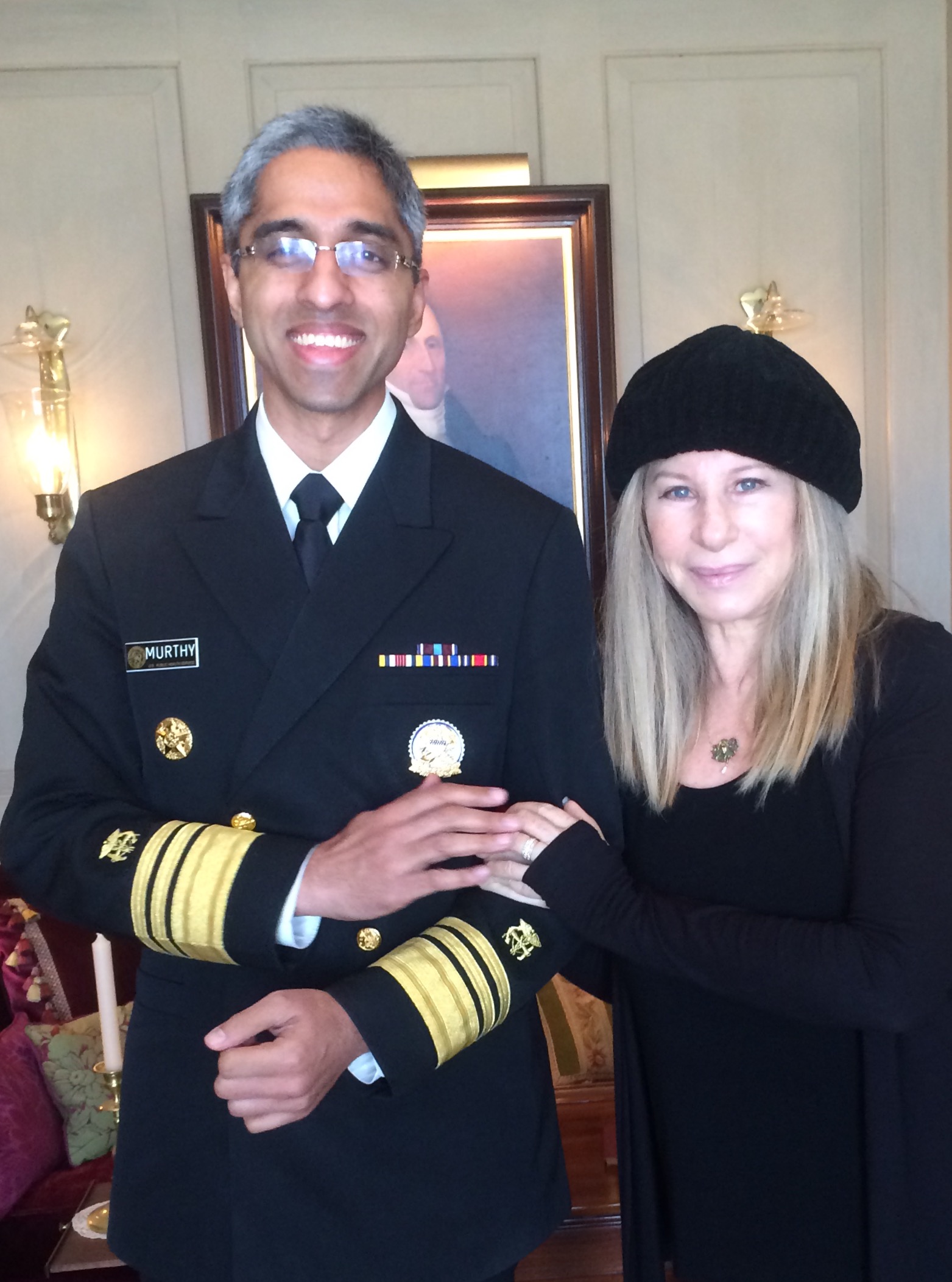
Imagine a person having a heart attack. If you’re like most people, you probably pictured a man. Yet cardiovascular disease kills one woman in America nearly every 90 seconds, close to 400,000 women each year. It’s the number one threat to life women face, killing more women than all cancers combined. Part of the reason this killer is so effective is that most women don’t even realize it’s there.
Not even our own mothers.
Diane Streisand Kind worked in the New York City school system, helped many charitable causes and passed her beautiful singing voice down to her daughter. At the age of 81, she got sick and needed bypass surgery to save her life.
Myetraie Murthy came to this country with her husband and two small children and ran her husband’s family medicine clinic. Yet, even though her father died of a heart attack and her mother had a stroke in her 60s, Myetraie has always focused on the health of her family, friends and neighbors—not her own.
Ninety percent of women have one or more risk factors for heart disease or stroke, yet, like our mothers, they too often go unaware of the threat for too long. And as a result, too many women are suffering and dying from a largely preventable disease.
If we want to save more women’s lives, we have to change what we do, as individuals and as a society, so that women understand their risk and can get the help they need. That is why we are marking American Heart Month by asking all Americans to join in combating this quiet epidemic—for themselves and for the women they love. Here’s what you should know:
1. It’s important to recognize the symptoms of heart disease and get help quickly.
This is especially important since heart attacks in women can present in less-obvious ways. While chest pain or discomfort is still the most common symptom of a heart attack, women are more likely than men to have atypical symptoms such as nausea, weakness, fatigue, shortness of breath and back, shoulder or jaw pain.
2. Women can lower their own risk of heart disease proactively.
In fact, 80% of heart disease and strokes can be prevented by lifestyle changes and education. It starts by eating a nutritious and balanced diet. A good diet is a critical part of heart health and will help you have more energy and feel better. If you’d like tips about what to eat, you can go to choosemyplate.gov.
Be active. An average of 22 minutes of brisk walking a day can significantly reduce your risk of heart disease and dying early. We know it never feels like there are enough hours in the day, but a small amount of activity can make a big difference. Better yet, do it with your family or friends.
If you’re a smoker, seek help to quit. There’s nothing more effective. Within one year of quitting, your risk of coronary heart disease is cut in half.
And make sure to visit your doctor to get screened and assess your unique risk for heart disease.
3. Safeguarding women’s heart health is not something individuals can do alone.
It will take women and men, families and communities coming together to make structural changes that will help lower the risk of heart disease.
We must ensure that our neighborhoods have a grocery store or a farmer’s market where we can get fresh fruits and vegetables at affordable prices. We must work to build sidewalks and playgrounds in our communities so we can take walks and play outside with our children without fearing for our safety. And we must continue to use our voices to call for equitable medical research—because today only one third of research participants in heart studies are women.
These are changes we can only make together. Getting healthy and building communities that support health are much easier tasks to achieve when we are pursuing them hand-in-hand with the people around us.
Just as our mothers have been incredibly important in both our lives, women have long been the backbone of our families and our nation. The history of our country has seen the steady—and often too slow—march towards equality and fair treatment for women. Advancing cardiovascular health for women will be an important step in that journey.
More Must-Reads from TIME
- Donald Trump Is TIME's 2024 Person of the Year
- Why We Chose Trump as Person of the Year
- Is Intermittent Fasting Good or Bad for You?
- The 100 Must-Read Books of 2024
- The 20 Best Christmas TV Episodes
- Column: If Optimism Feels Ridiculous Now, Try Hope
- The Future of Climate Action Is Trade Policy
- Merle Bombardieri Is Helping People Make the Baby Decision
Contact us at letters@time.com